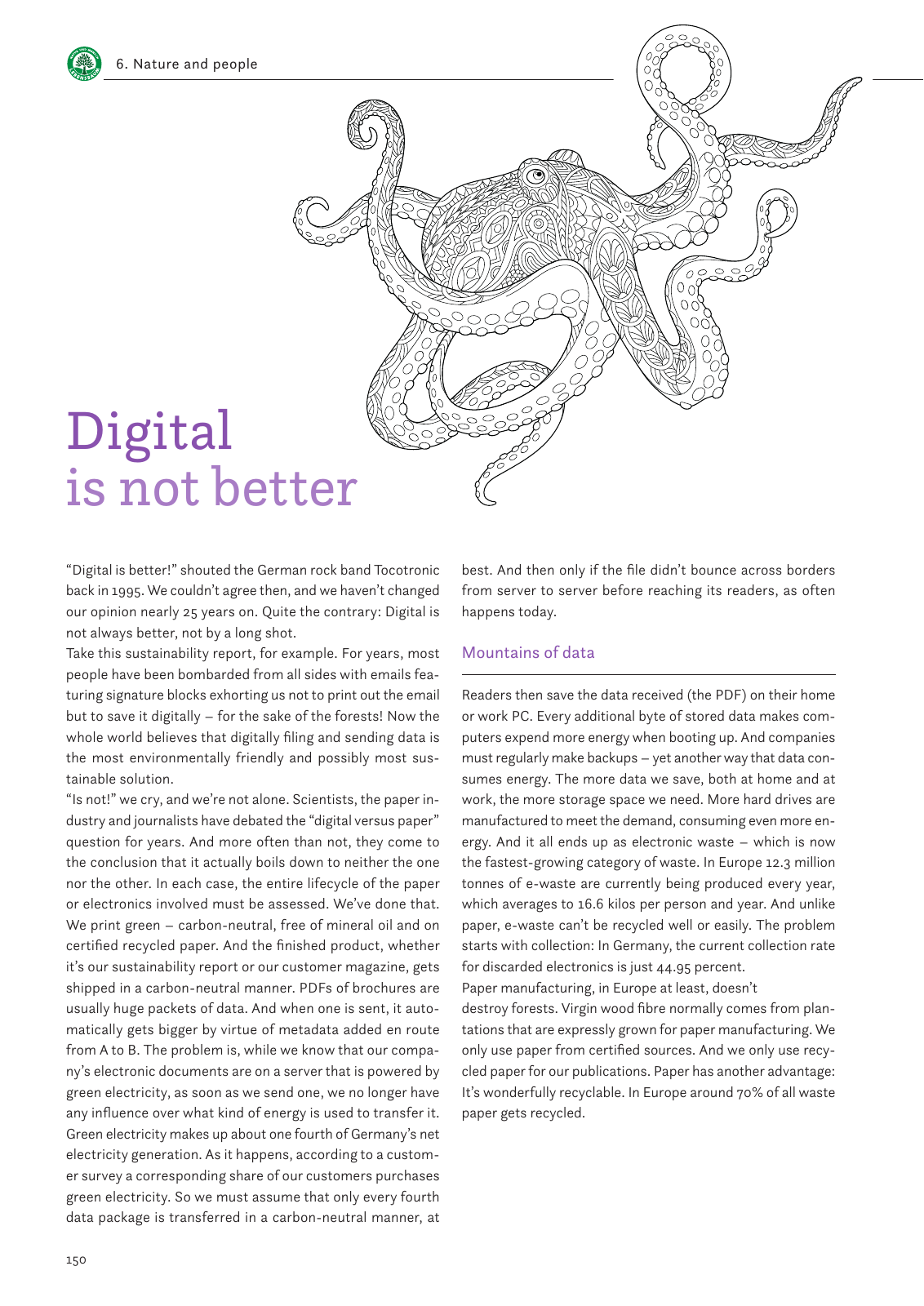150 Digital is not better Digital is better shouted the German rock band Tocotronic back in 1995 We couldn t agree then and we haven t changed our opinion nearly 25 years on Quite the contrary Digital is not always better not by a long shot Take this sustainability report for example For years most people have been bombarded from all sides with emails fea turing sigNature blocks exhorting us not to print out the email but to save it digitally for the sake of the forests Now the whole world believes that digitally filing and sending data is the most environmentally friendly and possibly most sus tainable solution Is not we cry and we re not alone Scientists the paper in dustry and journalists have debated the digital versus paper question for years And more often than not they come to the conclusion that it actually boils down to neither the one nor the other In each case the entire lifecycle of the paper or electronics involved must be assessed We ve done that We print green carbon neutral free of mineral oil and on certified recycled paper And the finished product whether it s our sustainability report or our customer magazine gets shipped in a carbon neutral manner PDFs of brochures are usually huge packets of data And when one is sent it auto matically gets bigger by virtue of metadata added en route from A to B The problem is while we know that our compa ny s electronic documents are on a server that is powered by green electricity as soon as we send one we no longer have any influence over what kind of energy is used to transfer it Green electricity makes up about one fourth of Germany s net electricity generation As it happens according to a custom er survey a corresponding share of our customers purchases green electricity So we must assume that only every fourth data package is transferred in a carbon neutral manner at best And then only if the file didn t bounce across borders from server to server before reaching its readers as often happens today Mountains of data Readers then save the data received the PDF on their home or work PC Every additional byte of stored data makes com puters expend more energy when booting up And companies must regularly make backups yet another way that data con sumes energy The more data we save both at home and at work the more storage space we need More hard drives are manufactured to meet the demand consuming even more en ergy And it all ends up as electronic waste which is now the fastest growing category of waste In Europe 12 3 million tonnes of e waste are currently being produced every year which averages to 16 6 kilos per person and year And unlike paper e waste can t be recycled well or easily The problem starts with collection In Germany the current collection rate for discarded electronics is just 44 95 percent Paper manufacturing in Europe at least doesn t destroy forests Virgin wood fibre normally comes from plan tations that are expressly grown for paper manufacturing We only use paper from certified sources And we only use recy cled paper for our publications Paper has another advantage It s wonderfully recyclable In Europe around 70 of all waste paper gets recycled 6 Nature and people

Hinweis: Dies ist eine maschinenlesbare No-Flash Ansicht.
Klicken Sie hier um zur Online-Version zu gelangen.
Klicken Sie hier um zur Online-Version zu gelangen.